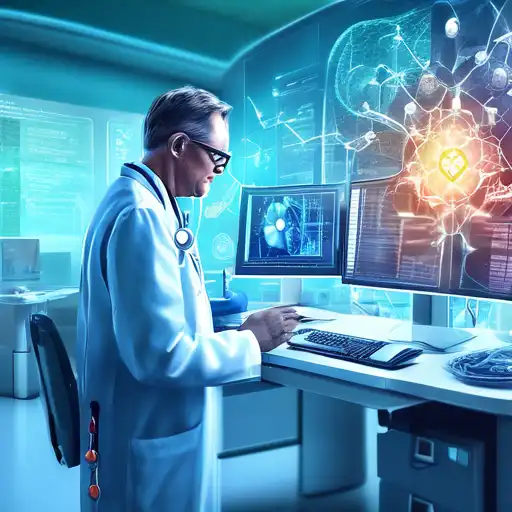The Transformative Impact of Data Science on Modern Healthcare
In the rapidly evolving world of healthcare, data science has emerged as a cornerstone for innovation and efficiency. By harnessing the power of big data, machine learning, and predictive analytics, healthcare providers are now able to offer personalized treatment plans, improve patient outcomes, and streamline operational processes. This article explores the multifaceted ways in which data science is revolutionizing the healthcare industry.
Personalized Medicine and Treatment Plans
One of the most significant contributions of data science to healthcare is the development of personalized medicine. By analyzing vast datasets of patient information, including genetic data, lifestyle factors, and medical history, data scientists can identify patterns and predict individual health risks. This enables healthcare providers to tailor treatment plans to the unique needs of each patient, significantly improving the effectiveness of medical interventions.
Enhancing Diagnostic Accuracy
Data science is also transforming the diagnostic process. Advanced algorithms can process and analyze medical images, such as X-rays and MRIs, with greater accuracy and speed than human practitioners. This not only reduces the likelihood of diagnostic errors but also allows for earlier detection of diseases, which is crucial for successful treatment outcomes.
Operational Efficiency and Cost Reduction
Beyond patient care, data science is optimizing healthcare operations. Predictive analytics can forecast patient admission rates, helping hospitals manage staffing and resources more effectively. Additionally, data-driven insights are being used to reduce waste and lower costs, making healthcare more accessible to a broader population.
Challenges and Ethical Considerations
Despite its benefits, the integration of data science into healthcare is not without challenges. Issues such as data privacy, security, and ethical use of patient information must be carefully managed to maintain trust and compliance with regulations. Furthermore, the healthcare industry must address the digital divide to ensure that the benefits of data science are accessible to all.
In conclusion, data science is playing a pivotal role in transforming healthcare. From personalized medicine to operational efficiencies, the potential for improved patient outcomes and system-wide enhancements is immense. As technology continues to advance, the intersection of data science and healthcare promises to bring even more groundbreaking innovations to the forefront of medical practice.
For more insights into how technology is shaping the future of healthcare, explore our articles on medical technology and big data in healthcare.
